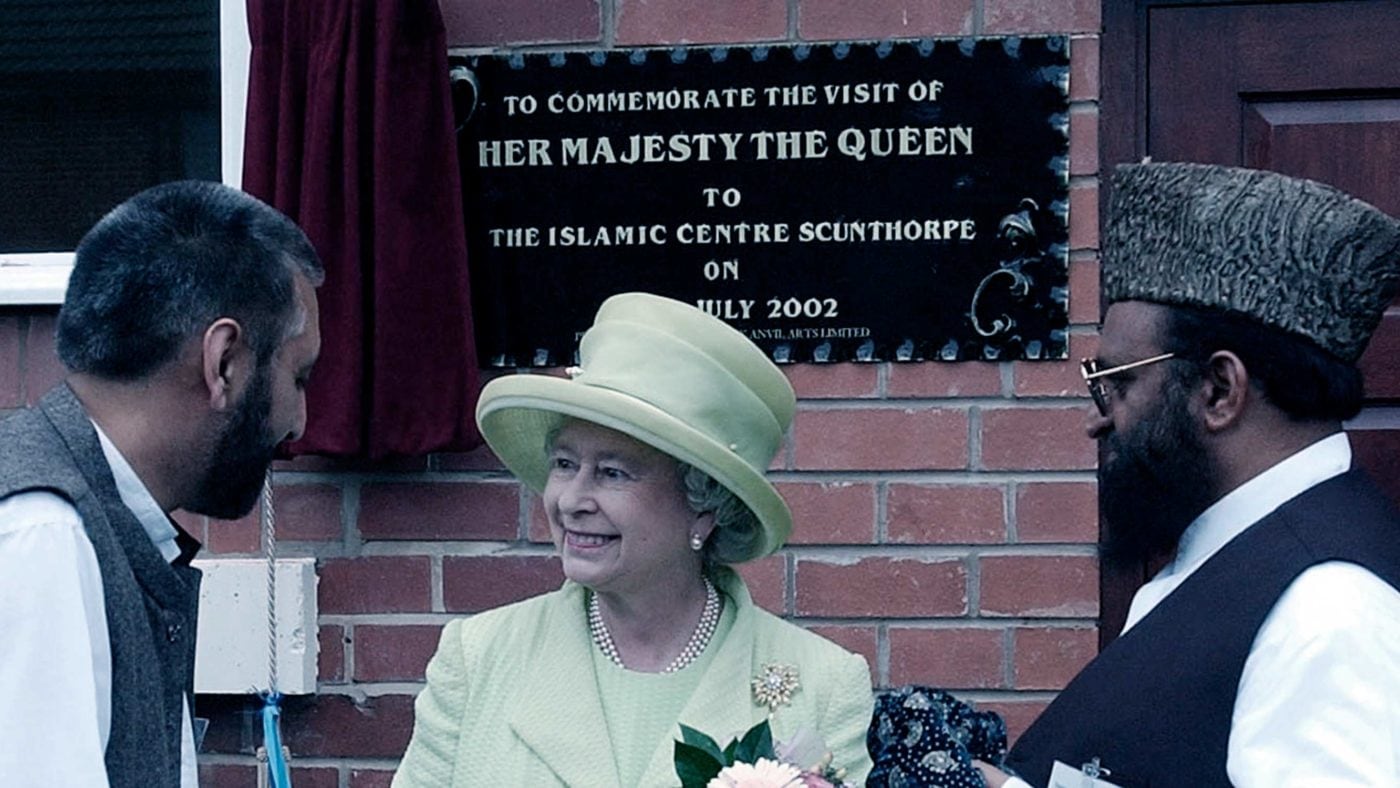There are those who portray the Royal Family as an institution that is at worst reactionary and at best outdated, one detached from the diverse, modern country it represents.
From my own vantage point as a British Muslim of Bangladeshi and North Indian origin – a member of both an ethnic and religious minority – this sort of thing rings completely hollow. It’s a particularly absurd claim when it comes to our late Queen. For there is no doubt that Elizabeth II was a steadfast, unwavering friend to Britain’s ethnic minorities. More bizarre still has been hearing rent-a-gob commentators claiming that the Queen was somehow responsible for the evils of colonialism – a claim that even the faintest acquaintance with her reign should quickly dispel.
My hometown of Luton typifies the high regard the Queen was held in by ethnic minority Brits. During this year’s Platinum Jubilee, you couldn’t move for Union Jack bunting in one of the most ethnically diverse, multi-faith places in the country. Those diverse communities are united by their shared appreciation of Queen Elizabeth II’s inspirational devotion to her faith and the pride she took in public service.
It’s also worth noting that in an increasingly secular, individualistic age, the Queen underlined the love and stability of family, the comfort and neighbourliness of a strong community and the resilience and optimism that can come from a strong personal faith. Those values go down especially well with traditionally-minded communities, many of whom see the monarchy not as outdated, but as a welcome corrective to the turpitude of our times. Far from being out of touch, the Queen’s values were very much shared by many of those she reigned over, which is why she is mourned with such intensity by so very many of our compatriots, of all faiths and ethnic groups.
But values are nothing without action, and here Her Majesty excelled.
There are endless glowing anecdotes about her personal warmth, with and deftness of diplomatic touch – but one which really stays with me is a story told by the late Chief Rabbi, Lord Sacks. He related how, as patron of the Holocaust Memorial Day Trust, the Queen broke royal protocol to spend as much time as she could with Holocaust survivors at a reception after the 2005 national Holocaust Memorial Day Ceremony. Her Majesty gave each survivor in a large group her ‘focused, unhurried attention’ and ‘stood with each until they had finished telling their personal story’.
When the Chief Executive of the Trust, Olivia Marks-Woldman, talks of Her Majesty’s ‘personal commitment and dedication’, it is stories like this she doubtless has in mind. It is also why the journalist Daniel Finkelstein remembers his grandmother – a refugee from Lviv who escaped political imprisonment – would frequently saying of British Jews that ‘while the Queen is safe in Buckingham Palace, we are safe in Hendon Central’.
She was also a great friend to British Muslims, as is abundantly evident from the tributes that have poured in since last Thursday. She was the first British monarch ever to enter a mosque when she visited the Islamic Centre in Scunthorpe during the Golden Jubilee celebrations . Her impact on the congregation was aptly summarised by Abid Khan, chairman of the North Lincolnshire Multi-Faith Partnership, who said simply: ‘We felt recognised.’
It was in the same year, on her first visit to a Hindu temple in Britain, that the Queen removed her shoes as a sign of respect. It was a telling demonstration of her standing among British Hindus that a temple priest in Leicester initiated prayers of remembrance with a garland of flowers placed around a photo of Her Majesty following her passing (as per conventional Hindu ritual).
Sikh worshippers in places such as Bradford joined special prayers to pay tribute. Dr Kuldip Bharj, general secretary to the Board of Bradford Gurdwaras, recalled meeting the Queen – saying that she ‘oozed kindness and compassion‘. And Lord Singh of Wimbledon, the director of the Network of Sikh Organisations, said that her death ‘marks a moment of great sorrow and reflection for us all’.
In another demonstration of the breadth of affection towards Her Majesty, the London Buddhist Vihara in Chiswick, the first Sri Lankan Buddhist monastery to be established outside of Asia, will hold a special puja performed by its monks this evening – devoted to the life of Her Majesty and offering blessings to King Charles III.
While critics might sneer at the monarchy, there is no doubt in my mind that the Queen played an integral part in fostering what is now one of the finest examples of an advanced multi-faith democracy in the modern world. Her strongly felt Christian faith was never a barrier to cultivating strong interfaith relations all over the country – quite the opposite. That is why she was held in such regard and is mourned so deeply by Britons from all walks of life.
It is that spirit of harmonious, tolerant and, yes, modern British leadership that the new King will surely seek to rule – and he could not have hoped for a finer example of how to do so than his mother’s.
Click here to subscribe to our daily briefing – the best pieces from CapX and across the web.
CapX depends on the generosity of its readers. If you value what we do, please consider making a donation.


